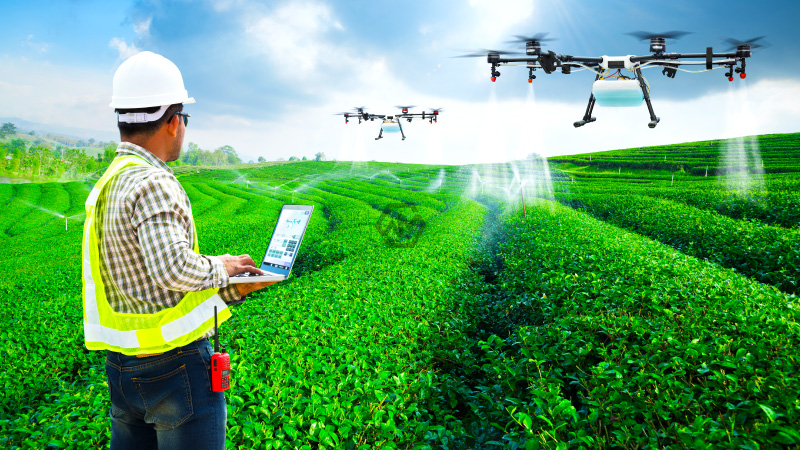- Drones in agriculture enhance crop monitoring and management.
- Government initiatives drive adoption and support for drone technology.
- Precision farming with drones improves efficiency and sustainability.
Drone technology is reshaping Indian agriculture by offering unprecedented capabilities in precision farming and crop management. From real-time crop health assessments to efficient irrigation management, drones provide valuable insights that help farmers optimize resource use and increase yields.
The integration of drones into farming operations represents a significant leap forward in productivity and environmental stewardship. By reducing reliance on manual labor and minimizing chemical inputs, drones facilitate more efficient and eco-friendly farming practices.
Empowering Indian Farmers: The Role of Drone Technology in Agriculture
Drone technology is revolutionizing agriculture in India by enabling precise and data-driven farming practices. Through capabilities such as aerial crop monitoring, pest detection, and targeted application of fertilizers, drones empower farmers to make informed decisions that optimize yield and reduce costs. This technology is particularly beneficial for small-scale farmers, offering them access to tools that were previously out of reach. Government support, including financial incentives and training programs, plays a crucial role in fostering the adoption of drones across the agricultural landscape.
The use of drones in agriculture also promotes environmental sustainability by minimizing chemical usage and optimizing water resources through precise irrigation management. This not only improves crop health but also ensures that farming remains economically viable while conserving natural resources. As drones become more affordable and easier to operate, their potential to transform Indian agriculture grows, promising increased productivity and resilience against environmental challenges like climate change and water scarcity.
Efforts like the Drone Didis initiative, aimed at training rural women to operate drones, highlight the inclusive nature of drone technology adoption in India. By empowering women and marginalized communities with technological skills, these initiatives not only enhance agricultural productivity but also contribute to social and economic empowerment at the grassroots level. With ongoing advancements and supportive policies, drones are set to become indispensable tools for sustainable agriculture in India, driving innovation and growth in the sector.
In conclusion, the integration of drone technology in Indian agriculture marks a pivotal shift towards smarter, more efficient farming practices. With its potential to boost yields, conserve resources, and empower rural communities, drones are not just tools of progress but agents of sustainable development. By embracing this technology and fostering a supportive ecosystem, India can pave the way for a resilient and prosperous agricultural future.
“Technology is just a tool. In terms of getting the kids working together and motivating them, the teacher is the most important.”
– Bill Gates



